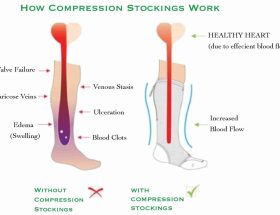Journaling is a powerful tool that allows individuals to track their progress in various aspects of life. Whether it’s personal growth, career development, or simply maintaining a healthy lifestyle, journaling provides a means to reflect on achievements, setbacks, and set new goals.
Setting Goals and Objectives
By maintaining a journal, individuals can set goals and objectives for themselves. These could be short-term or long-term goals, specific to different areas of life. Having a written account of these objectives helps to clarify and solidify one’s aspirations.
Reflecting on Achievements and Setbacks
Journaling allows individuals to reflect on their achievements and setbacks. By jotting down the progress made, journaling offers a sense of accomplishment and boosts motivation. Furthermore, it enables individuals to identify patterns or habits that contribute to setbacks, allowing for a more informed approach to overcome challenges.
Maintaining Accountability
Keeping a journal holds individuals accountable for their progress. The act of writing down achievements and setbacks helps to establish a sense of responsibility towards personal development. By reviewing previous entries, one can assess their growth and identify areas in need of improvement.
Tracking Personal Growth
Journaling serves as a personal growth tracker. Regularly documenting thoughts, emotions, and experiences provides a timeline of personal growth. This allows individuals to reflect on how far they have come and the lessons learned along the way.
Enhancing Self-Awareness
Through journaling, individuals can develop a deeper understanding of themselves. By examining their thoughts and emotions, they can identify triggers, strengths, and weaknesses. This increased self-awareness enables individuals to make more conscious choices and actively work towards personal development.
Developing Problem-Solving Skills
When faced with challenges, journaling helps individuals develop problem-solving skills. By recording obstacles and brainstorming potential solutions, individuals can evaluate different strategies and determine what works best for them.
Improving Decision-Making
Keeping track of decisions made and their consequences allows for better decision-making. Journaling provides an opportunity to analyze past choices, their outcomes, and the reasons behind them. This reflection helps individuals make more informed decisions in the future.
Managing Stress and Improving Well-being
Journaling can be a therapeutic outlet for managing stress and improving overall well-being. By putting thoughts and emotions on paper, individuals can release pent-up feelings and gain a sense of relief. Additionally, it allows for self-reflection, gratitude, and an opportunity to focus on the positive aspects of life.
Documenting Achievements and Milestones
Journals serve as personal archives documenting achievements and milestones. They provide a tangible record of progress and serve as a reminder of past successes. This documentation can be immensely motivating and inspire individuals to strive for further accomplishments.
Conclusion
Overall, journaling is an invaluable tool for tracking progress and personal growth. By providing a means to set goals, reflect on achievements and setbacks, maintain accountability, and improve decision-making skills, journaling plays a crucial role in enhancing various aspects of life. Embracing the habit of journaling can lead to a more fulfilling and purposeful journey towards self-improvement.








